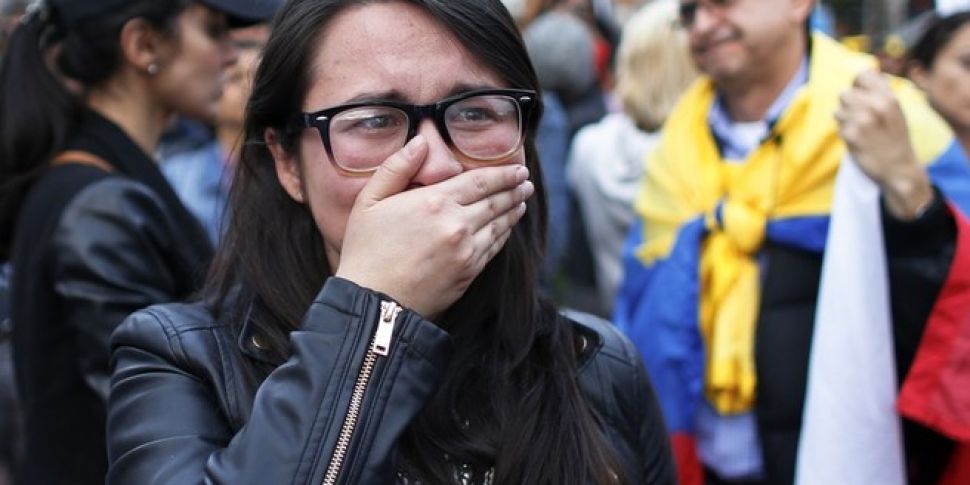The Colombian government's chief peace negotiator has offered to resign after voters rejected a deal with the FARC rebels.
A referendum over the weekend said 'no' to an agreement hammered out between the left-wing group and the government.
The sides have been fighting for more than 50 years, resulting in the loss of more than 200,000 lives.
The former Tánaiste, Eamon Gilmore, acted as the EU Special Envoy to the Colombian peace process and says he was surprised by the vote - especially after opinion polls had showed a large lead for a 'yes' vote.
The "no" camp in the nation's referendum won by 50.21% to 49.78%.
Turnout was low at just over 37%. Authorities said heavy rain caused some disruption to voting as Hurricane Matthew passed over the Caribbean.
The accord, which had been negotiated in Havana, Cuba, called for the FARC (Revolutionary Armed Forces of Colombia) to disarm in six months and convert into a political group with seats in Colombia's Congress.
President Juan Manuel Santos conceded defeat in the vote, but vowed to continue peace efforts.
"The majority has said 'No'," he said in a televised address.
But he added: "I will not give in, and I will continue to seek peace to the last day of my term."
FARC leader Rodrigo Londono, alias Timoleon "Timochenko" Jimenez, also vowed the group was committed to continuing peace efforts.
"The FARC deeply deplores that the destructive power of those who sow hate has influenced opinion," he said in a speech in Havana, where peace negotiations have taken place over the past four years.
But it maintains "its willingness to use dialogue as the only weapon for building the future", he added.

Opponents of the peace deal celebrate the result in Bogota | Photo: PA Images
Opponents of the pact believed the deal was too lenient on FARC rebels by allowing them to re-enter society, form a political party and escape jail sentences.
Bogota engineer Alejandro Jaramillo, 35, said: "I voted no. I don't want to teach my children that everything can be forgiven."
The FARC launched its guerrilla war on the government in 1964, after a peasant uprising that was crushed by the army.
The ideological and territorial conflict drew in several leftist rebel groups, right-wing paramilitaries and drug gangs.
Colombian authorities estimate the conflict has left 260,000 people dead, 45,000 missing and nearly seven million displaced.









